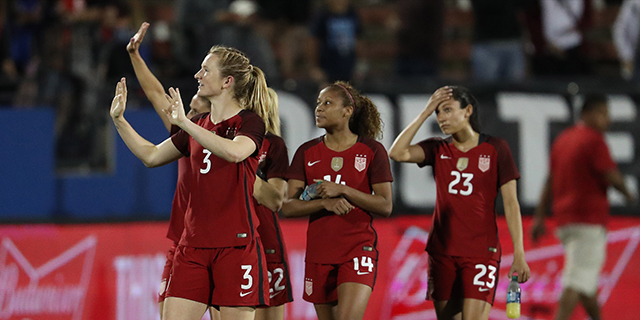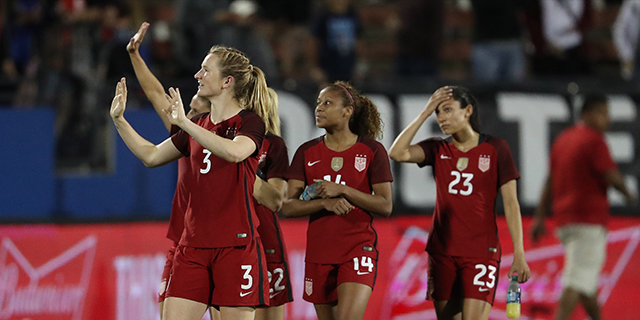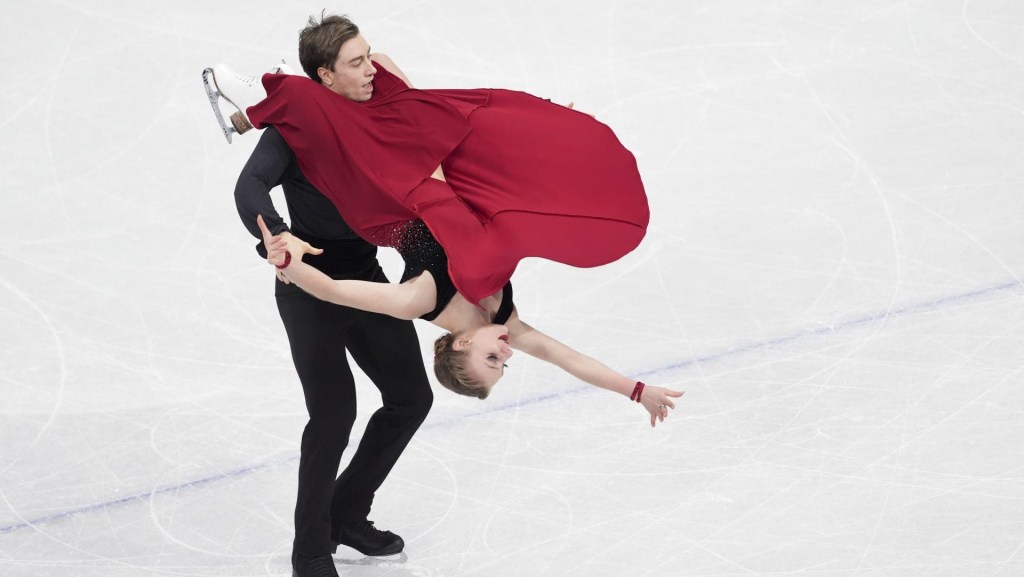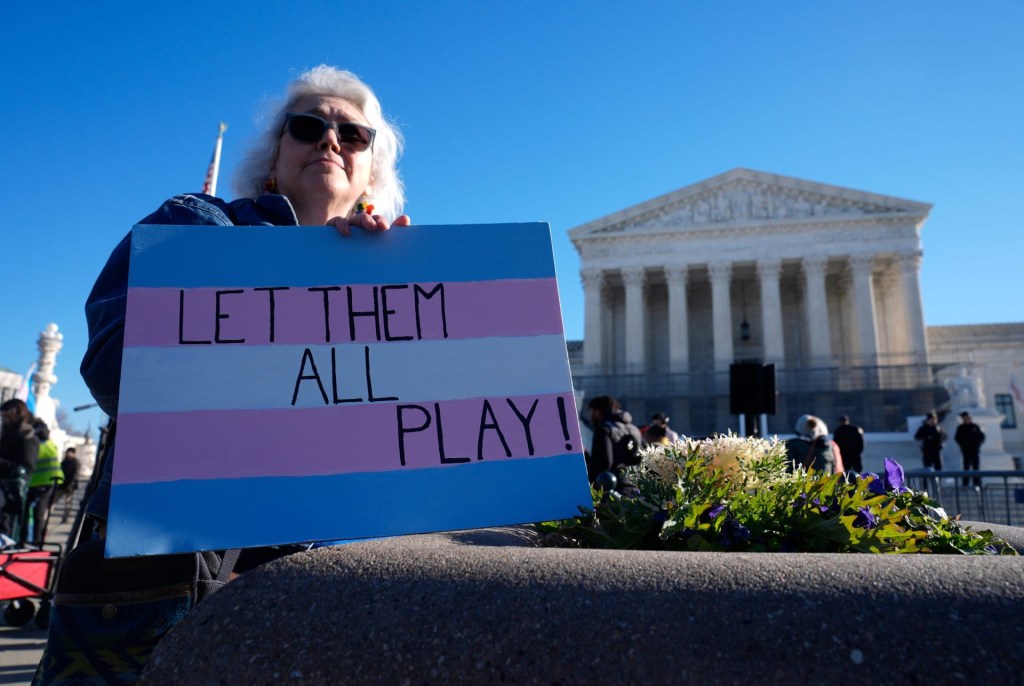
Photo Credit: Matthew Emmons-USA TODAY Sports
The U.S. Women’s Soccer Team (USWNT) recently reignited its three-year battle with its employer, the U.S. Soccer Federation (USSF), by filing a lawsuit in federal court for institutional wage discrimination.
The lawsuit comes after the USWNT had initially filed a wage discrimination complaint under the Equal Pay Act (EPA) and Title VII with Equal Employment Opportunity Commission (EEOC), the government agency responsible for examining such claims. After a lengthy investigation, the EEOC granted the USWNT a “right to sue” letter, allowing them to clear a necessary procedural hurdle, and the team filed its lawsuit a month later on International Women’s Day 2019.
A quick recap of the dispute so far. The USWNT had filed a complaint with the EEOC in March of 2016 alleging that they were paid less than the men’s national team, a potential violation of both the EPA and Title VII. The USSF responded by arguing that: 1) the pay disparity was not as stark as the USWNT made it out to be; 2) any pay difference between the two sides could be attributed to the pay structure agreed upon by the USWNT Players’ Association; and 3) the USSF had not violated either the EPA or Title VII because they could rely on the affirmative defenses available to them under the law. In the midst of the EEOC’s investigation, the two sides reached a new collective bargaining agreement in 2017, through which many of USWNT’s complaints were addressed. The current lawsuit, however, is for potential EPA and Title VII violations that occurred before the current CBA went into effect.
READ MORE: NBC and Refinery29 Promote Female Empowerment Through ‘On Her Turf’
This lawsuit is particularly interesting for two reasons. First, it provides a rare glimpse into what wage-discrimination lawsuit looks like in a professional sports context. Most sports-related wage-discrimination claims occur in college as opposed to professional sports because men and women’s professional sports leagues are institutionally separated. This means that players in the WNBA, for example, cannot sue the NBA for being paid less than men because the NBA is not their employer.
In college sports, however, men and women’s sports programs fall under the same institution, and male and female coaches are employed by the same entity, which allows female coaches to bring equal pay claims by arguing that a common employer — the university — pays a female employee less than a male counterpart. The lawsuit with the USWNT is more analogous to college sports because the USSF is the common employer for both the men and women’s soccer teams, thereby allowing the USWNT to meet the preliminary requirements of establishing a case under the EPA.
Second, what separates this lawsuit from other wage-discrimination claims both in and out of sports is that the USWNT is suing for institutional wage discrimination. Instead of saying that a particular female employee was paid less than a particular male employee, the USWNT is looking to establish a class action lawsuit and is alleging that the Federation acted in a way that hurt the women’s soccer program as a whole. Such institutional disparity lawsuits are common in college sports because of Title IX but are relatively rare in the EPA and Title VII context.
[mc4wp_form id=”8260″]
Just like it did in its response to the USWNT’s initial EEOC complaint, the USSF will likely rely on a market-force defense in its answer. Essentially, they’ll not only deny that a pay disparity exists in the first place but also argue that any wage discrepancy between the men’s and women’s soccer teams is justified because the market for men’s soccer is greater than the market for women’s soccer — and, as a result, the men’s team generates more revenue than the women’s team. Thus, any additional wages paid to the men’s soccer team over the women’s team are not discriminatory but rather based on “a factor other than sex,” a recognized defense under the EPA and Title VII.
What will make this case tricky for the court evaluating it is that, in order to properly assess the validity of the market-force defense, the court must not only understand the differences in the markets between the two sides but also look at the USSF’s role in shaping the respective markets.
READ MORE: Elias Sports Bureau Continues Evolution While Staying in the Family
In other words, this runs a lot deeper than simply stating that the men’s team generated more revenue than the women’s team. If the USSF spent more money on advertising men’s games over women’s games or ensured that the men’s team played during prime time TV slots while the women played during off times, then the USSF has contributed in allowing the men’s team to generate more revenue than the women’s team by investing in one market at the expense of the other. Such an analysis will require the court to reject taking the market at face value but instead examine the underlying factors that comprise the market in the first place.
How the USSF actually responds to the USWNT’s complaint and how a court handles a future trial between the two sides remains to be seen. What is clear, though, is that this latest USWNT lawsuit comes at a time when women are shattering the glass ceiling throughout sports. A few years after becoming the first female full-time assistant coach in any of the four major U.S. professional leagues, Becky Hammon became the first female coach to be interviewed for a head coaching job in the NBA when the Milwaukee Bucks spoke to her about their vacancy in May 2018. The Tampa Bay Buccaneers recently became the first NFL team to hire two full-time female assistant coaches. On the equal-pay front, the U.S. Women’s National Hockey Team won a dispute with its governing body after threatening to boycott the 2017 Hockey World Championships.
Even if the USWNT is unable to obtain its desired outcomes through litigation, the team is making strides in the larger fight for women’s equality simply by filing this lawsuit and bringing awareness to the issue. And, already, there is evidence that the USWNT’s lawsuit is sparking change. Adidas recently announced that it would begin paying equal bonuses to women’s World Cup winners as those earned by winners of the men’s tournament. Other sponsors and business partners may soon follow suit. No matter the outcome, the USWNT is reminding the entire sports industry that the fight for gender equality is here to stay. But the rallying cry will be even louder if they win.

















